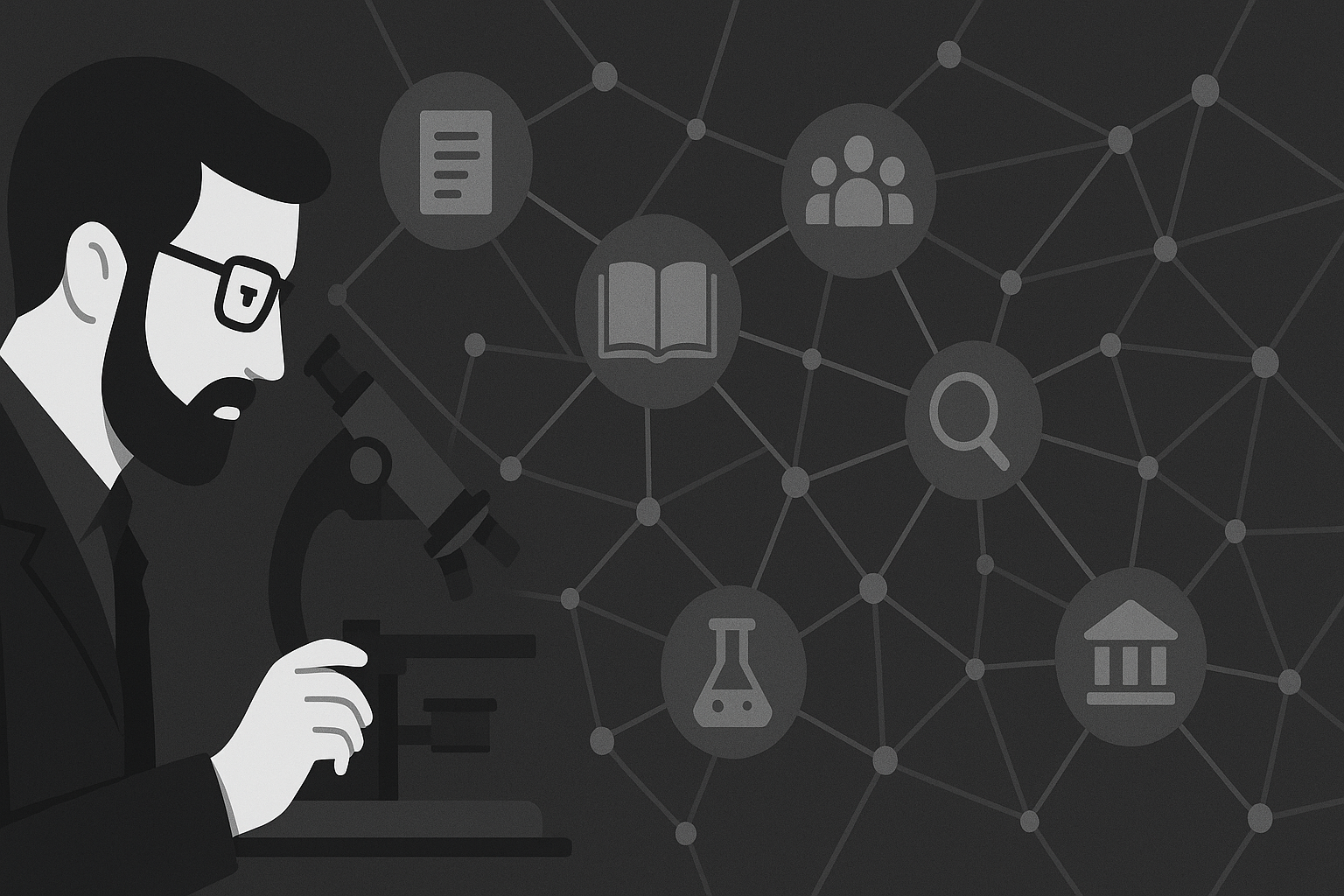
This article summarises research from “Generated Knowledge Prompting for Commonsense Reasoning” by Jiacheng Liu and colleagues from the University of Washington

This article summarises research from “Generated Knowledge Prompting for Commonsense Reasoning” by Jiacheng Liu and colleagues from the University of Washington

This blog post is based on and summarises the paper Connected Research: The Potential of the PID Graph” by Helena Cousijn, Ricarda Braukmann, Martin Fenner, Christine Ferguson, René van Horik, Rachael Lammey, Alice Meadows, and Simon Lambert, published in 2021.

Introduction Imagine a world where every piece of research—every article, dataset, researcher, and institution—is seamlessly connected, no matter where it resides or how the digital landscape shifts. This isn’t a distant dream; it’s the reality being forged by persistent identifiers (PIDs). These unassuming strings of characters are revolutionizing how we create, share, and build upon knowledge.

This article summarises research from "Tree of Thoughts: Deliberate Problem Solving with Large Language Models" by Shunyu Yao, Dian Yu, Jeffrey Zhao, Izhak Shafran, Thomas L. Griffiths, Yuan Cao, and Karthik Narasimhan.
Published today in GigaScience is a new algorithm connecting social and biological networks to identify key proteins in Human Health. Researchers at Ben-Gurion University of the Negev have developed a machine-learning algorithm that could enhance our understanding of human biology and disease.
TIB, a long-standing supporter and development partner of the Public Knowledge Project, hosted the first translation sprint, more than 10,000 words were translated See the original German version in TIB’s blog The free and open source software Open Journal Systems (OJS) by the Public Knowledge Project (PKP) is a very popular workflow management software in European Open Access (OA) publishing (cf. e.g. country reports
[Author's Note: This is Version 2 of this Editorial Blog Post. Version 1 was openly reviewed through MetaROR and this version reflects changes made as a result of those reviews. The response to reviewers is here.] Academia is undergoing a rapid transformation characterized by exponential growth of scholarly outputs.
A few months back, Upstream editor Martin Fenner suggested that I submit my Upstream blog post titled, Drinking from the Firehose? Write More and Publish Less, for peer-review as a sort of experiment for Upstream through MetaROR. MetaROR, a relative newcomer to the scholarly communication community, provides the review and curate steps in the "publish-review-curate" model for meta-research.
Back in early 2012, I pondered about the relationships between a science-based blog post and a science-based journal article. This was in part induced by my discovering a blog plugin called Kcite, which allow a journal articles to be appended to the blog in the form of a numbered reference list.

Impact factor. The power of this term is unparalleled in academia. The word “impact” by itself is already so profoundly heavy. And second in line to it, would be tenure.

The Final Report from the National Security Commission on Emerging Biotechnology